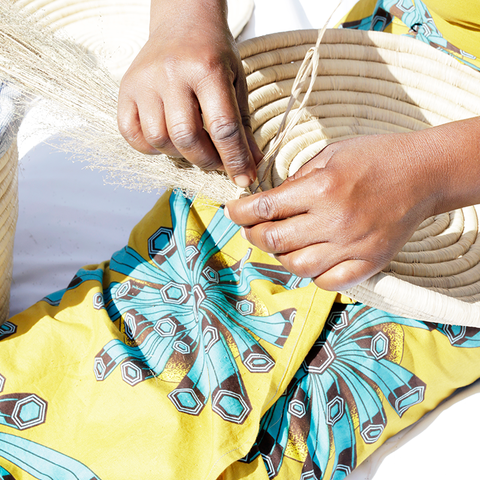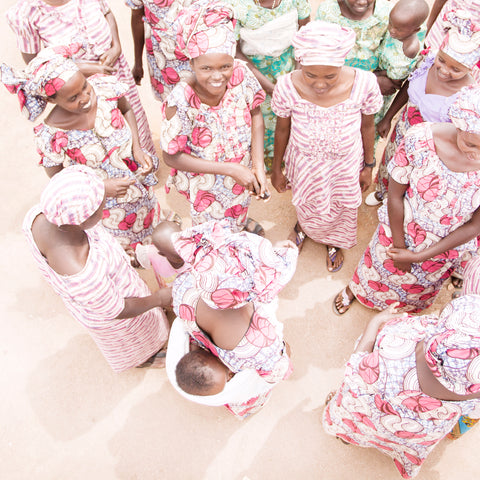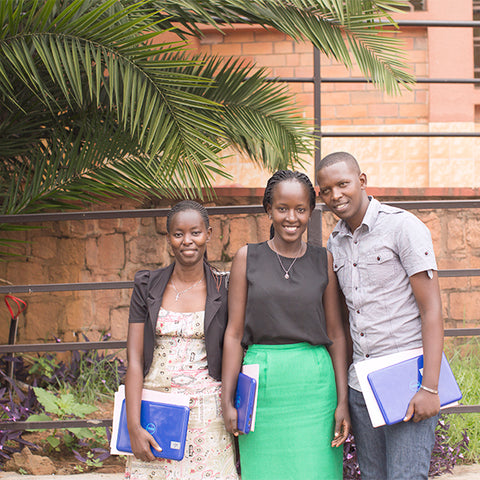On April 7th, we commemorate those whose lives were brutally disrupted by the Rwandan genocide and who continue to endure the effects of those tragic events today. When the genocide ended, 70% of Rwanda’s population was female, leaving women to play a crucial role in the country’s reconstruction.
In the 24 years since the genocide, Rwanda has made incredible social, economic, and political progress. The country reduced its poverty and child mortality rates, created accessible roads, improved the quality and efficiency of healthcare services, and established a parliament in which women hold 64% of the seats (the highest proportion of women in the world!).
Through resourcefulness, perseverance, and steadfast determination, our artisan partners have been at the forefront of change in their local communities. They survived the genocide and rebuilt their own lives with courage and dignity. Now, they are utilizing their experience and skills to become role models and mentors for the next generation of women in Rwanda.
Today, we are honored to share the story of one of our dedicated artisan partners who is not only building a new life for herself and women in her community, but also creating a brighter future for her country.

Josepha Mujawayezu was born in Rwanda in 1968. She survived the genocide but remembers how difficult and isolating it was to rebuild her life in the years following those atrocities. “I didn’t want to be with others because I felt ashamed and worthless,” said Josepha. “I felt like I had no contribution to give. I dressed badly and had little money to pay for my most basic needs. My life was not easy!”
As a solo artisan entrepreneur, Josepha often resorted to peddling her woven products on the street- something which, on more than one occasion, got her into trouble with the police. She began partnering with Indego Africa in 2015 with the hopes of earning consistent income for her products and building her own artisan cooperative.
Today, Josepha employs 37 women who weave raffia into baskets and bags for Indego’s collection and the local market. She continually works to improve her cooperative’s efficiency and productivity and loves working alongside other empowered women. “I like the way I can share with them,” said Josepha. “There are many different women with different skills, knowledge, and ideas, so coming together helps us become not only a better cooperative but also better people.”
In July 2017, Josepha welcomed 12 recent graduates of Indego’s Vocational & Business Training program into her co-op. These young women had interned at Josepha’s cooperative during training and were eager to become full-time members. Josepha too was eager to build the capacity of her artisan business. Together, these women have created a better-run, more productive enterprise. This has enabled the entire cooperative to take on more clients, receive more orders, and earn more income.
In the midst of fulfilling a high volume of raffia orders, these young women took it upon themselves to teach English to some of the senior artisans in Josepha’s cooperative. “We wanted to learn how to speak English so that we could communicate with Indego Africa’s representatives and leaders,” said Josepha. “We wanted to be able to express ourselves in English and better understand what they said so we could continue to improve our business.”
Josepha’s senior artisans have also taught lessons to their newly-integrated members. “I think the younger women have learned from us that in life one must look for a way to be successful without waiting for someone else to come and give it to you,” said Josepha. “You must take whatever skills and talent you have and try to do something with it.”
The collaborative relationship Josepha has helped instill among her cooperative members speaks to the intergenerational power of Indego’s model. By helping train and employ young people, Indego’s older artisan partners are passing down their knowledge and skills, improving the quality and legacy of their businesses, and creating leadership opportunities for a new generation of women.
In the 24 years since the genocide, Rwanda has seen incredible unity, reconciliation, and change. “Women now have a voice in this country,” said Josepha. “Families used to wish to give birth to only boys, but now they want daughters- it doesn’t matter if it’s a boy or a girl. A woman is now encouraged to go study and dream of success like a man used to do.”
In the future, Josepha wants to continue growing her business and teach more young women about the benefits of joining a cooperative. Just a few short years ago, Josepha found healing in the power of working with other women. Today, she feels hopeful when she sees women launch an artisan cooperative of their own because she knows how successful it has made her and her family.
Hand-in-hand with a new generation of artisans, Josepha is creating opportunities for women in her community and helping move Rwanda forward.



